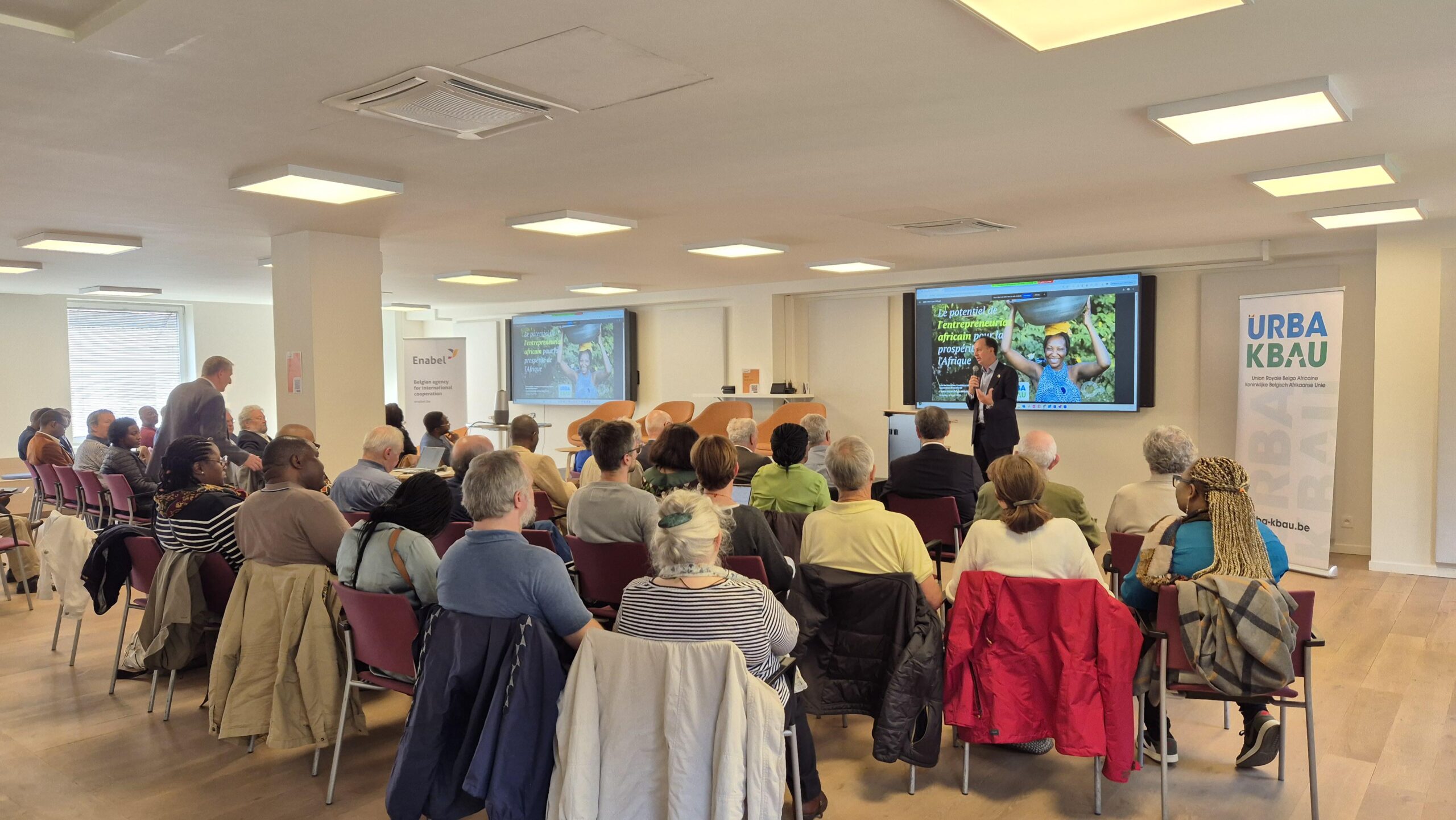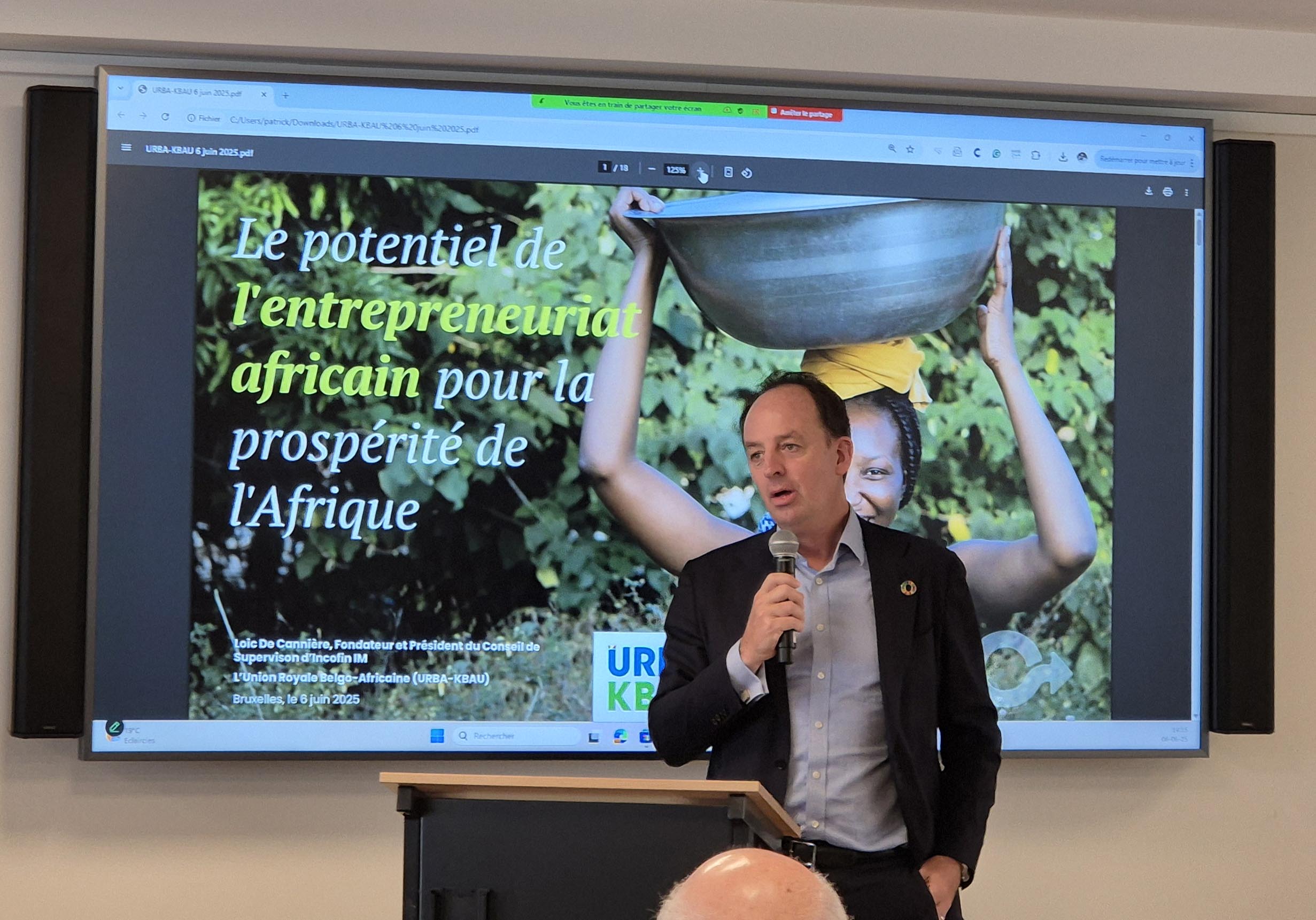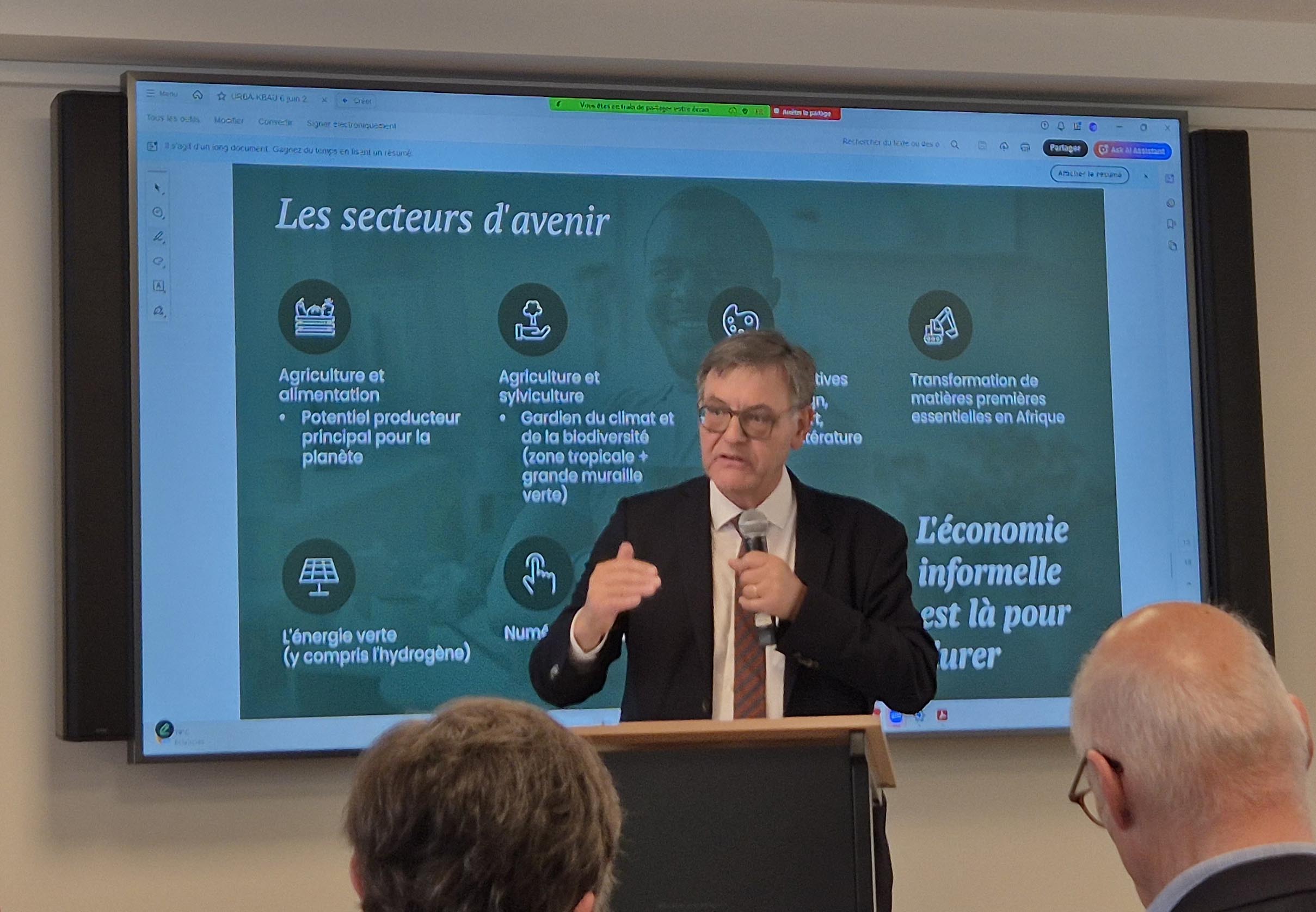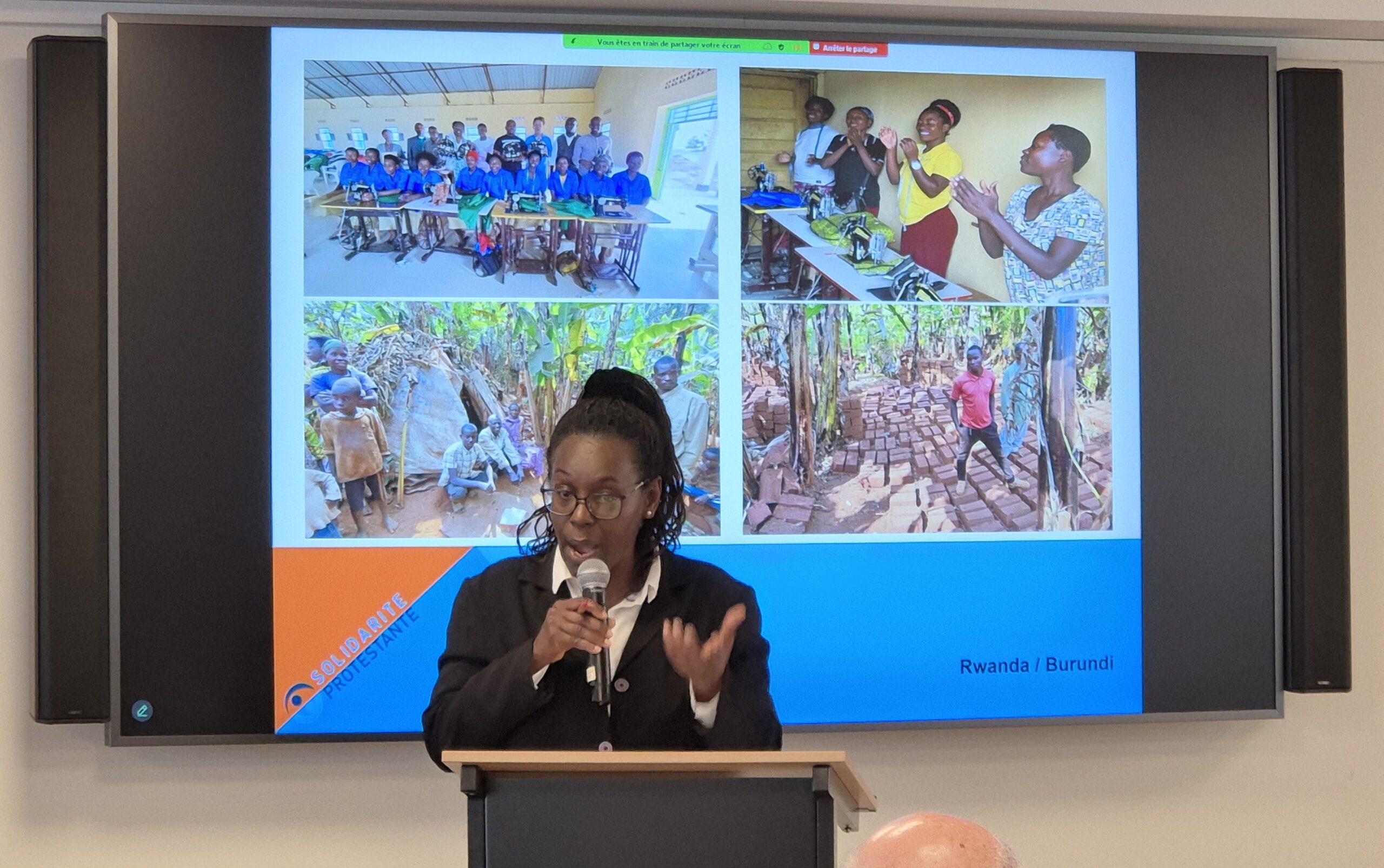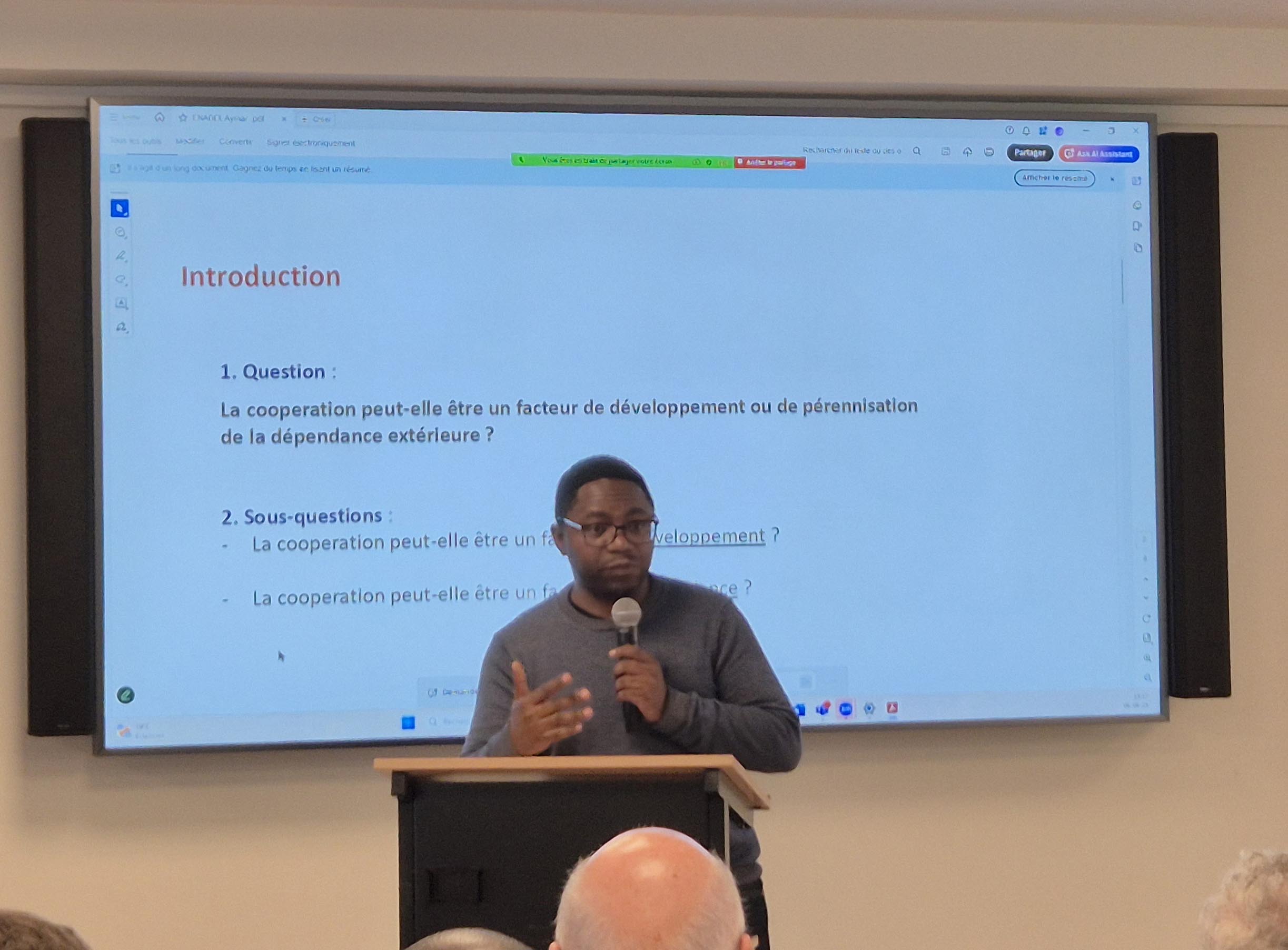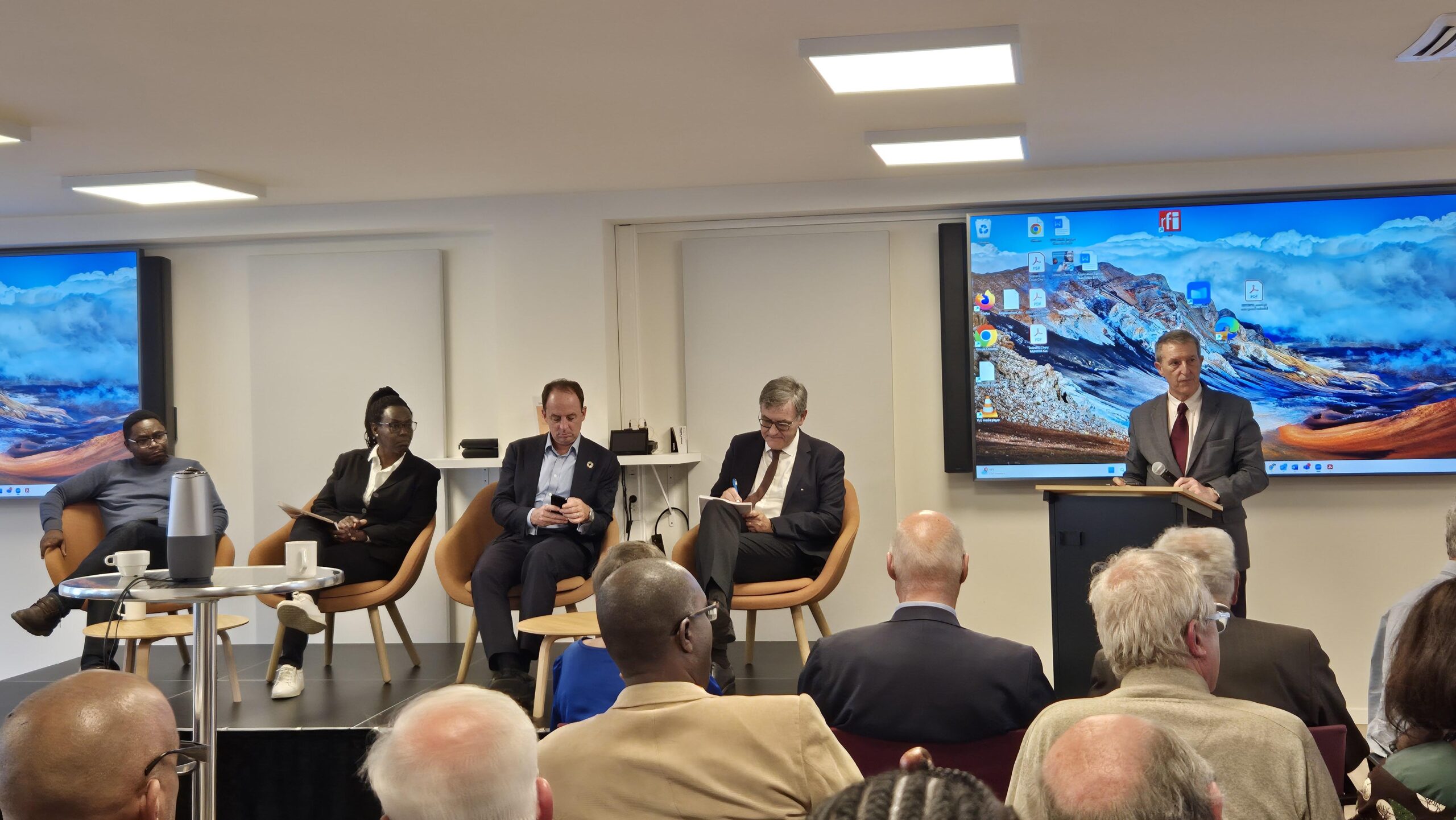Friday, June 6, 2025 – Conference-debate “Intense bilateral cooperation since 1965: what lasting impact, what prospects?
“Can development cooperation really be a factor in sustainable development or is it also a factor in perpetuating dependency without any decisive impact on development?”
URBA-KBAU had brought together four speakers chosen to form a panel, each of whom shed light on one or more of the many facets of Belgian cooperation.
Mr. Jean Van Wetter, CEO of ENABEL, the Belgian agency responsible for implementing official Belgian cooperation programs, presented his dynamic vision of international partnerships in which ENABEL aims to play an effective part in tackling urgent global challenges such as climate change, social and economic inequalities, demographic trends, peace and security, in the new geopolitical environment.
Chevalier Loïc De Cannière, CEO and founder of INCOFIN Investment, shared his passion for actively contributing to the challenges of employment and better-shared prosperity in a demographically-challenged Africa. Author of a recent well-documented book, he argues for more substantial efforts, of which he is himself a committed player, in favor of the private sector through the involvement of local private players.
Mrs. Henriette Umulisa, Executive Secretary of the NGO Solidarité Protestante, active in the three border countries of the DRC, Rwanda and Burundi, shared her experiences in the field, through local actions in favor of rural communities, emphasizing solidarity between members of the beneficiary communities. A particular feature: these actions are carried out indiscriminately in all three countries.
Prof. Aymar Nyenyezi Bisoka, FNRS researcher and professor at the University of Mons, developed his “decolonial” reading of the theme “Cooperation, a factor of development or perpetuation of external dependence?”. Having chosen to develop his analysis from the premise that the West seeks to dominate the countries of the South, he had few positive words for Belgian cooperation, any more than for other Western countries, which he sees as leading an enterprise of domination to maintain dependency in poverty!
The four speakers then engaged in a lengthy and lively question-and-answer session, focusing on ENABEL’s work: project lead times, practical constraints linked to the environment in which projects are carried out, etc. The conference ended with a moment of conviviality, allowing participants to continue their exchanges with the panelists and make new acquaintances.
Comments
The rich diversity of the audience was appreciated, both in face-to-face and remote sessions, and CEO Jean Van Wetter’s vision highlighted how ENABEL is an institution fully in tune with global trends, and that it is committed to meeting the expectations of efficiency, transparency and stakeholder priorities.
Chevalier Loïc De Cannière, author of the recent book “Afrika, een gedroomde toekomst” (translated into English as “The Future of Employment in Africa: Demography, labor markets and welfare”) has revealed himself to be a player motivated not by the lure of profit, but as an activist passionate about the accelerated and sustainable development of tens of millions of young Africans, by proposing realistic formulas to African partners.
Similarly, Ms Henriette Umulisa was convincing in presenting sustainable achievements more frequently implemented in rural communities by NGOs, but emphasizing how the inclusion of a solidarity clause from the first partners towards other applicants contributes to sustainability and the multiplication of positive results.
We can only regret that Prof. Aymar Nyenyezi Bisoka did not include the endogenous African elements that are responsible for the failure or poor performance of certain development projects. And yet, many objective African analysts unabashedly point to problems of poor governance, corruption and variable interest on the part of the authorities in areas they leave to external partners, thus freeing up national revenues for sectors in which national sovereignty allows greater freedom of manoeuvre.
There wasn’t enough time to go into the other aspects of Belgian cooperation, which in turn have had a major impact: military, financial, academic, multilateral, people-to-people cooperation…

